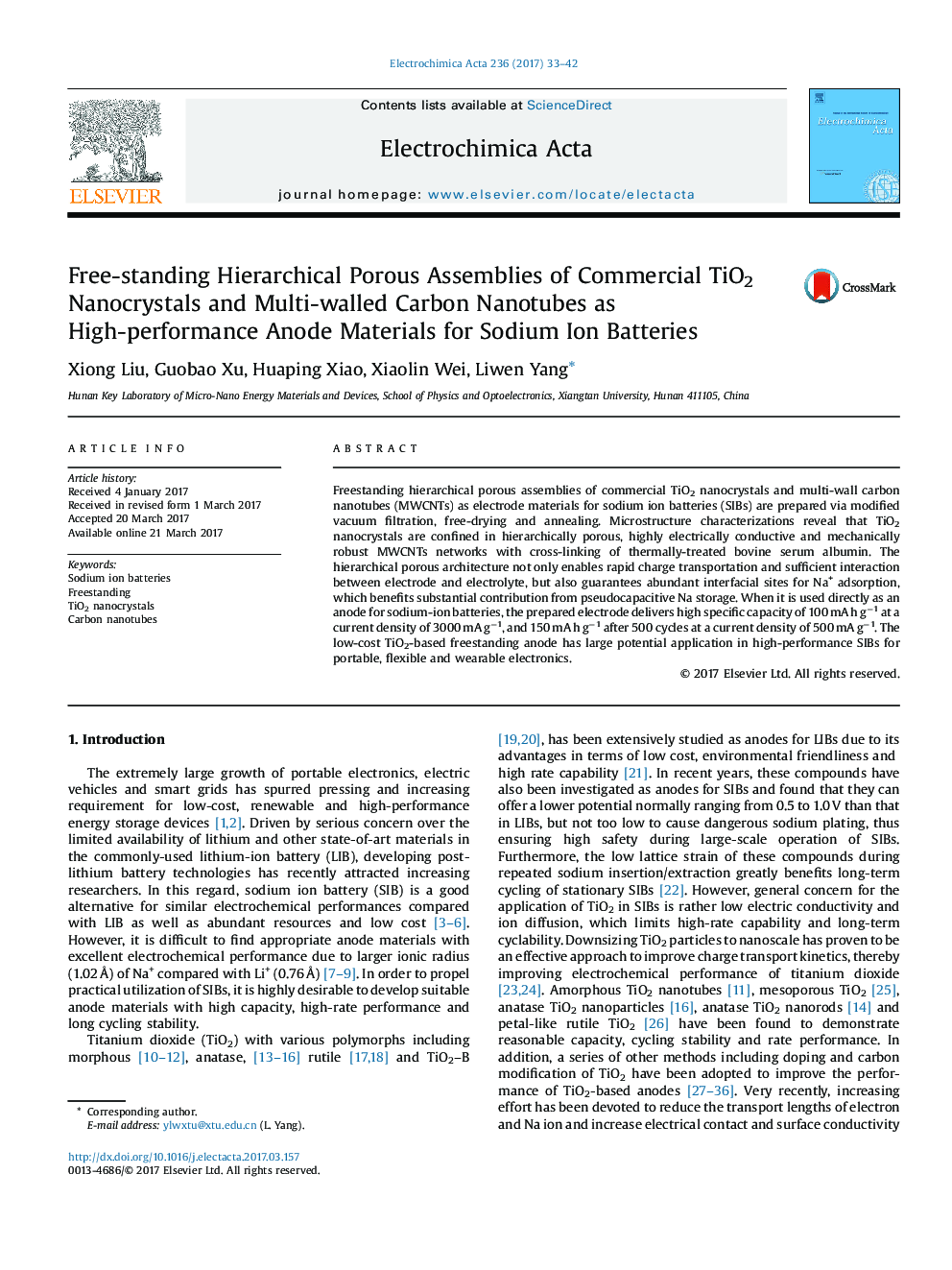| Article ID | Journal | Published Year | Pages | File Type |
|---|---|---|---|---|
| 4767227 | Electrochimica Acta | 2017 | 10 Pages |
Abstract
Freestanding hierarchical porous assemblies of commercial TiO2 nanocrystals and multi-wall carbon nanotubes (MWCNTs) as electrode materials for sodium ion batteries (SIBs) are prepared via modified vacuum filtration, free-drying and annealing. Microstructure characterizations reveal that TiO2 nanocrystals are confined in hierarchically porous, highly electrically conductive and mechanically robust MWCNTs networks with cross-linking of thermally-treated bovine serum albumin. The hierarchical porous architecture not only enables rapid charge transportation and sufficient interaction between electrode and electrolyte, but also guarantees abundant interfacial sites for Na+ adsorption, which benefits substantial contribution from pseudocapacitive Na storage. When it is used directly as an anode for sodium-ion batteries, the prepared electrode delivers high specific capacity of 100 mA h gâ1 at a current density of 3000 mA gâ1, and 150 mA h gâ1 after 500 cycles at a current density of 500 mA gâ1. The low-cost TiO2-based freestanding anode has large potential application in high-performance SIBs for portable, flexible and wearable electronics.
Related Topics
Physical Sciences and Engineering
Chemical Engineering
Chemical Engineering (General)
Authors
Xiong Liu, Guobao Xu, Huaping Xiao, Xiaolin Wei, Liwen Yang,
